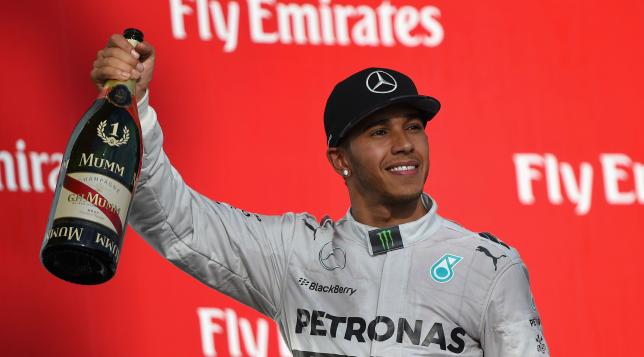
I interviewed Lewis Hamilton when he was 12 years old and making his mark in karting. A guy called Martin Hines, who was a legend in the world of karting and mentor to many young drivers who went on to be stars, tipped me off about Lewis, saying McLaren were about to sign him up and predicted he would go all the way.
After spending half an hour with Lewis and his dad Anthony I could see why Martin was so excited. Here was a confident youngster who was already clear about his destiny – to be Formula One World Champion and nothing was going to stop him.
Two years before I interviewed him Hamilton, then aged 10, approached Ron Dennis at an Autosport Awards ceremony and told him he wanted to drive for McLaren one day. Just over two years later Dennis took him on as part of McLaren’s Young Driver Support Programme and steered him towards his ambition as the young Hamilton blitzed the karting world and then delivered in Formula Three and GP2 before he was given his first drive in Formula One with McLaren in 2007.
He made an immediate impact, finishing third in his debut race and second in the championship, and went on to become the youngest ever world champion a year later. It was an amazing story but what followed in the next couple of years changed my opinion of him.
Whilst he was always super-confident, and you cannot become world champion without that ruthless self belief, Lewis was always a nice kid but whether superstardom came too soon or not, he began to lose his humility and appeared to become arrogant which brings its own form of unwanted pressure. The relationship with his father also took a turn for the worse and he replaced him as his manager.
Then there was the on-off relationship with girlfriend, American pop star Nicole Scherzinger, and all these off-track distractions took their toll. He also appeared to lose focus on the fact that he is an elite racing driver and not an American rap star, as his love for the glitzy celebrity lifestyle took centre-stage. His driving became a little reckless and if he had an accident then it was always someone else’s fault. No coincidence then that 2008 was his last title.
I can’t wait to come back next year! #thankyou #ontothenextone #USGP #bestfansintheworld #keepbelieving #nevergiveup pic.twitter.com/nYbEuYl5EF
— Lewis Hamilton (@LewisHamilton) November 4, 2014
Clearly, he needed to re-evaluate his priorities in life and thankfully, at the age of 29, he has got his act together. He has matured as a driver and the humility is back, along with his smile. He has repaired the relationship with his dad and although the celebrity stuff is still there it’s where it should be, in the background.
Hamilton’s move from McLaren to Mercedes has proved to be a shrewd one and he has handled the battle with his team-mate Nico Rosberg in the best possible way, by proving his superiority on the track. He is now the most successful British F1 driver of all time and one of the world’s most marketable sportsmen with a fortune of around £65m.
If, as expected, he wins his second title it will be well deserved and proof that real winners are those who manage to conquer the heights and retain their humility.
F1 needs to look after its own

Despite all the denials the American Grand Prix was in real danger of seeing a boycott by Force India, Lotus and Sauber in protest at the way Caterham and Marussia have been forced into administration.
Basically, there is a simmering row involving the haves and the have-nots and the way the vast amount of money which sloshes around Formula One is shared out.
There is currently a disgraceful disparity in what the big teams like Ferrari, Red Bull, McLaren and Mercedes get and the paltry offerings thrown to the small teams who struggle to survive.
Like in football, the bigger teams are always going to be the most financially powerful but that is no excuse for other outfits who make up the grid to be treated in such a shabby manner. F1 needs to look after its own.
These are the teams where so many up and coming drivers get their first chance to prove themselves in Formula One and as such they are a vital part of the grid and they need to be treated with more respect.
Thankfully, there is a proposal on the table which goes some way to solving the issue with the smaller teams getting a bigger pot of money, around $20m, to top up what they already get based on their final position in the constructor’s championship. It’s still not enough to guarantee they can sustain their existence in F1 but at least it’s a step in the right direction.